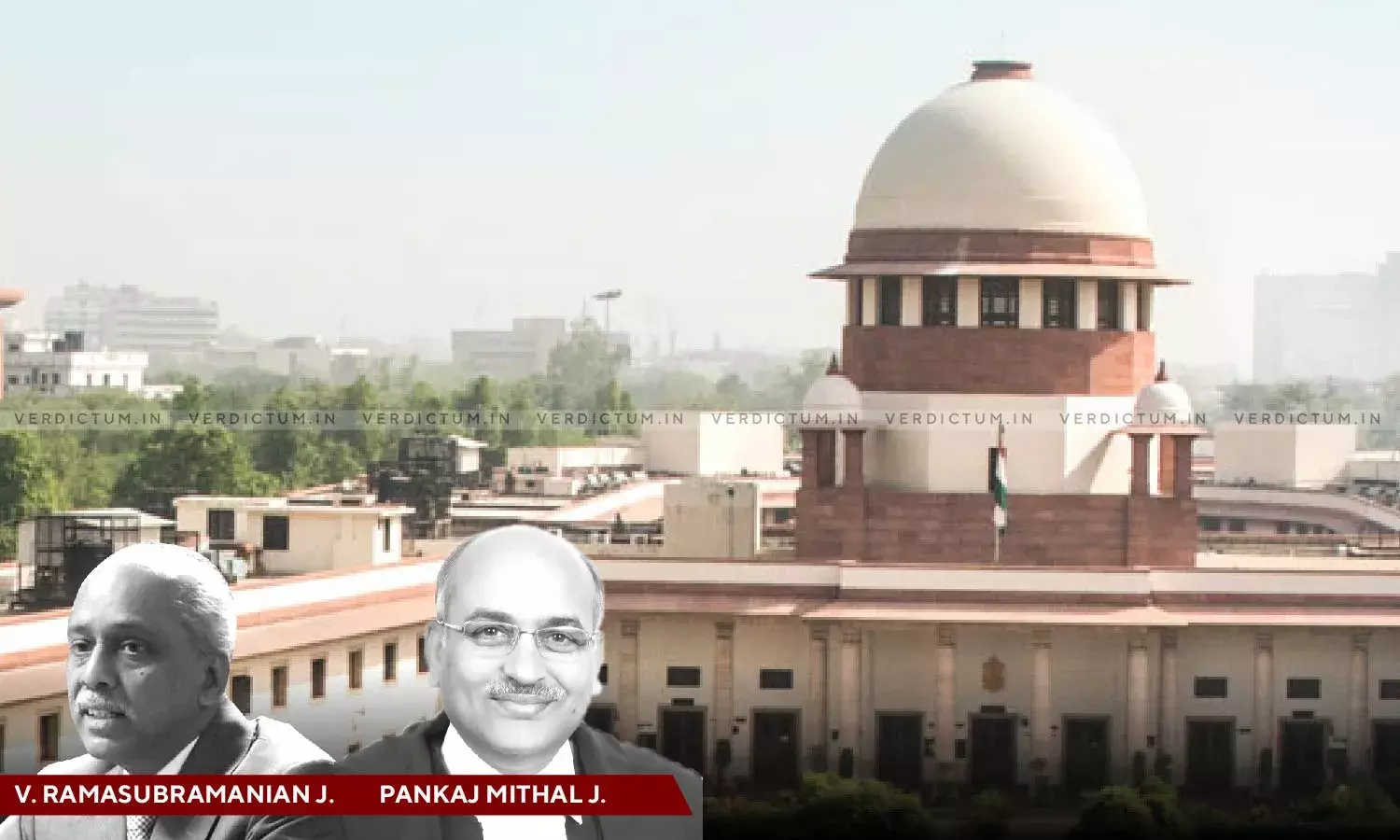Lack Of Jurisdiction To Entertain Complaint Cannot Be Ground To Order Transfer: SC Dismisses Plea To Transfer ED Case Involving Siddique Kappan To Kerala

The Supreme Court has dismissed a plea filed by K A Rauf Sherif, the first accused in the complaint filed by the Enforcement Directorate wherein Siddique Kappan is also an accused, for transferring the case from Lucknow to Ernakulam.
The Court held that the lack of jurisdiction of the Court to entertain a complaint cannot be ground to order its transfer.
The two-Judge Bench comprising Justice V. Ramasubramanian and Justice Pankaj Mithal observed, “… the Special Court, PMLA, Lucknow cannot be said to be lacking in territorial jurisdiction to entertain the complaint. In any case, the lack of jurisdiction of a Court to entertain a complaint can be no ground to order its transfer. A congenital defect of lack of jurisdiction, assuming that it exists, inures to the benefit of the accused and hence it need not be cured at the instance of the accused to his detriment.”
The Bench was dealing with a transfer petition preferred by the petitioner who was arrayed as an accused in a complaint filed by the Enforcement Directorate (ED) under Section 406 of the Cr.PC. read with Section 65 of the Prevention of Money Laundering Act, 2002 (PMLA) seeking to transfer a case from the Special Judge, PMLA, Lucknow to one in Ernakulam, Kerala.
Senior Advocate S. Nagamuthu appeared for the petitioner while Additional Solicitor General K.M. Nataraj appeared for the respondents.
Brief Facts -
The petitioner claimed that he was the General Secretary of Campus Front of India, which is now banned as an unlawful association, vide Notification issued by the Union of India, Ministry of Home Affairs under Section 3 of the Unlawful Activities (Prevention) Act, 1967. He was remanded to custody by the Special Judge at Ernakulam under Section 167(2) of the Code.
The petitioner contended that the filing of the complaint at Lucknow is impermissible and is not legally well-founded. He was arrested in Kerala and was produced before the Magistrate who remanded him to judicial custody till December 24, 2020, and therefore, the NIA moved an application under Section 167 of the Code before the Principal Sessions Judge, Ernakulam for the grant of ED custody for a period of 14 days.
The Supreme Court after hearing the contentions of the counsel noted, “… irrespective of where the FIR relating to the scheduled offence was filed and irrespective of which Court took cognizance of the scheduled offence, the question of territorial jurisdiction of a Special Court to take cognizance of a compliant under PMLA should be decided with reference to the place/places where anyone of the activities/processes which constitute the offence under Section 3 took place.”
The Court further said that the ground on which transfer is sought is that 7 out of 10 accused persons are residents of Kerala but the same can hardly be a ground for ordering the transfer of investigation.
“Similarly, the third ground that a majority of witnesses are also from Kerala/ South India is also no ground to order the transfer of the complaint. … the argument revolving around Section 167(2) of the Code also fails. … we find no legally valid and justifiable grounds to order this transfer”, asserted the Court.
The Court also referred to the case of Rana Ayyub v. Directorate of Enforcement through its Assistant Director, wherein questions of territorial jurisdiction under the PMLA Act were considered in detail.
Accordingly, the Court refused to transfer the case and dismissed the plea.
Cause Title- KA Rauf Sherif v. Directorate of Enforcement & Ors.


